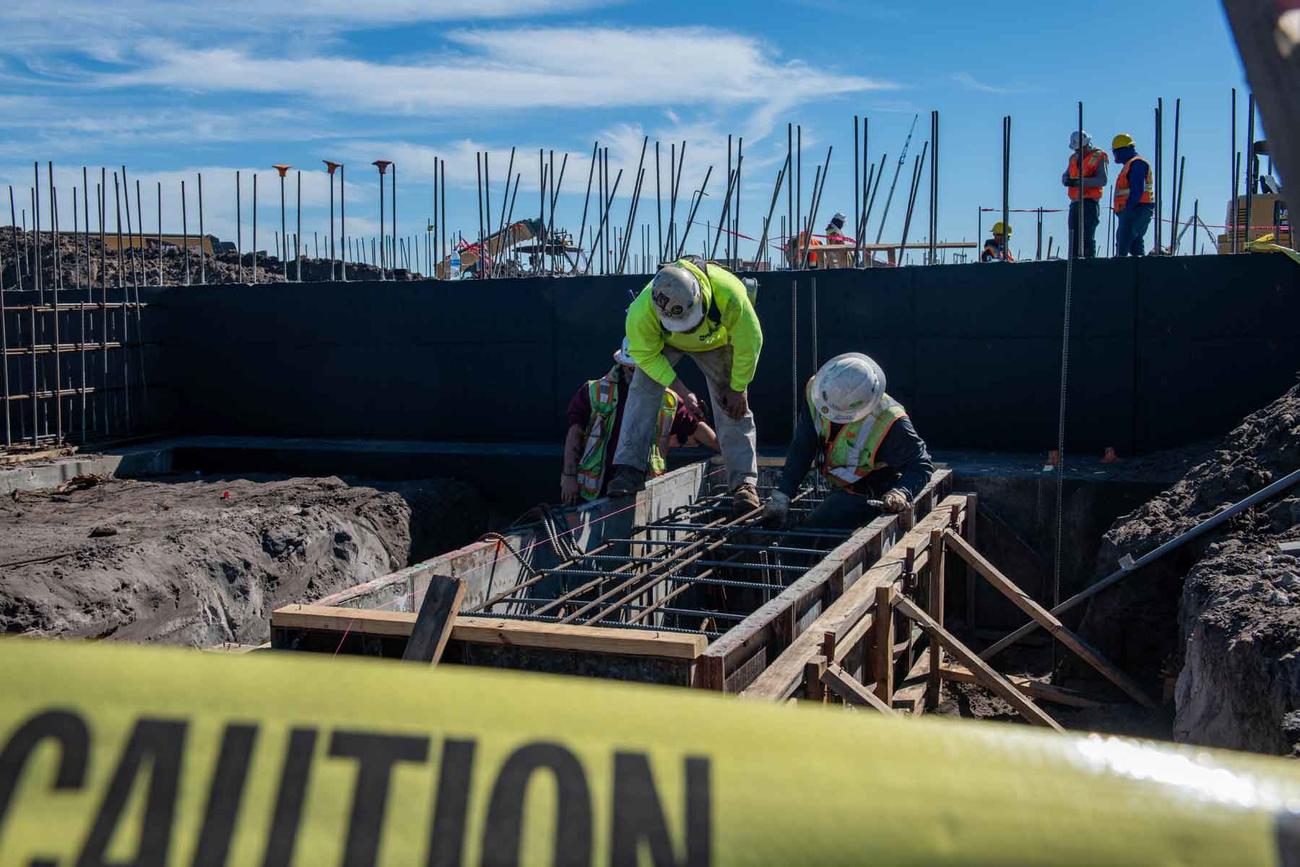
Military construction funding would expire earlier than the rest of the Pentagon budget under legislation on track to become law in order to avert a government shutdown at the end of the week.
It’s unclear if the staggered deadlines would have any practical effect on military construction projects, which have garnered increasing attention in recent months as investigations uncover unlivable barracks conditions. Typically, military construction funding that has been previously approved by Congress is allowed to be spent for up to five years, though a government shutdown limits the circumstances in which the money can be spent.
But the novel approach to keeping the government open adds another wrinkle to what has already been a particularly bumpy process to fund the Pentagon and the rest of the government this year.
The House on Tuesday afternoon overwhelmingly passed the stopgap spending measure, known as a continuing resolution, or CR. Senate Majority Leader Charles Schumer, D-N.Y., has said his chamber will take it up before current government funding runs out Friday night, with a vote possible as soon as Wednesday afternoon.
In an effort to buy more time to negotiate 12 individual full-year spending bills and relieve the pressure to reach deals on all spending bills by one date, House Speaker Mike Johnson, R-La., wrote a CR that funds part of the government until Jan. 19 and the other part until Feb. 2.
The two-step CR “is going to change the way we’ve done this. We have broken the fever. We are not going to have a massive omnibus spending bill right before Christmas,” Johnson said Tuesday, referring to the type of catch-all government funding bill that conservatives loathe that has become the norm for Congress in recent years.
Johnson’s CR splits the deadlines by appropriations bill, rather than by federal agency, and military construction is funded in a different appropriations bill than the rest of the Pentagon. That means military construction funding would run out in January and funding for the rest of the Pentagon would end in February under the CR.
The Department of Veterans Affairs, which is funded in the same bill as military construction, would fall into the January funding deadline as well.
The Pentagon has not commented on the concept of a two-tiered CR, though the department has long made known its distaste for CRs in general since they do not allow the Pentagon to start new programs.
“You want the Chinese to steal and adopt this model because it’s a terrible model,” Pentagon acquisition chief William LaPlante said about CRs on Tuesday at an event hosted by Politico.
A CR essentially puts the government on autopilot by extending the previous year’s funding level.
While the White House and Democrats initially panned Johnson’s proposal as “unserious” since it would set up rolling government shutdown deadlines, they ultimately backed the CR as the least bad option to avoid a disruptive government shutdown. The CR does not include any Democratic red lines such as steep spending cuts or controversial policy riders.
Also left out of the CR is the White House’s request for $106 billion in emergency funding for the wars in Ukraine and Israel, as well as national security issues in the Indo-Pacific region and security on the U.S.-Mexico border.
But national security-minded lawmakers who support the Ukraine and Israel funding said the priority at the moment is to prevent a government shutdown. Government shutdowns are seen as particularly disruptive to the military since service members are generally required to continue working without pay.
“We find ourselves running out of time,” Senate Armed Services Committee Chairman Jack Reed, D-R.I., said about the government funding deadline at the Politico event. “It’s not a question of preference; it’s a question of necessity. Keep the government open, and then we can go ahead, I hope, quickly and pass a supplemental with Ukraine and Israel together.”
— Rebecca Kheel can be reached at rebecca.kheel@military.com. Follow her on X @reporterkheel.
Related: Here’s How New House Speaker Mike Johnson Voted on Veteran and Military Issues









